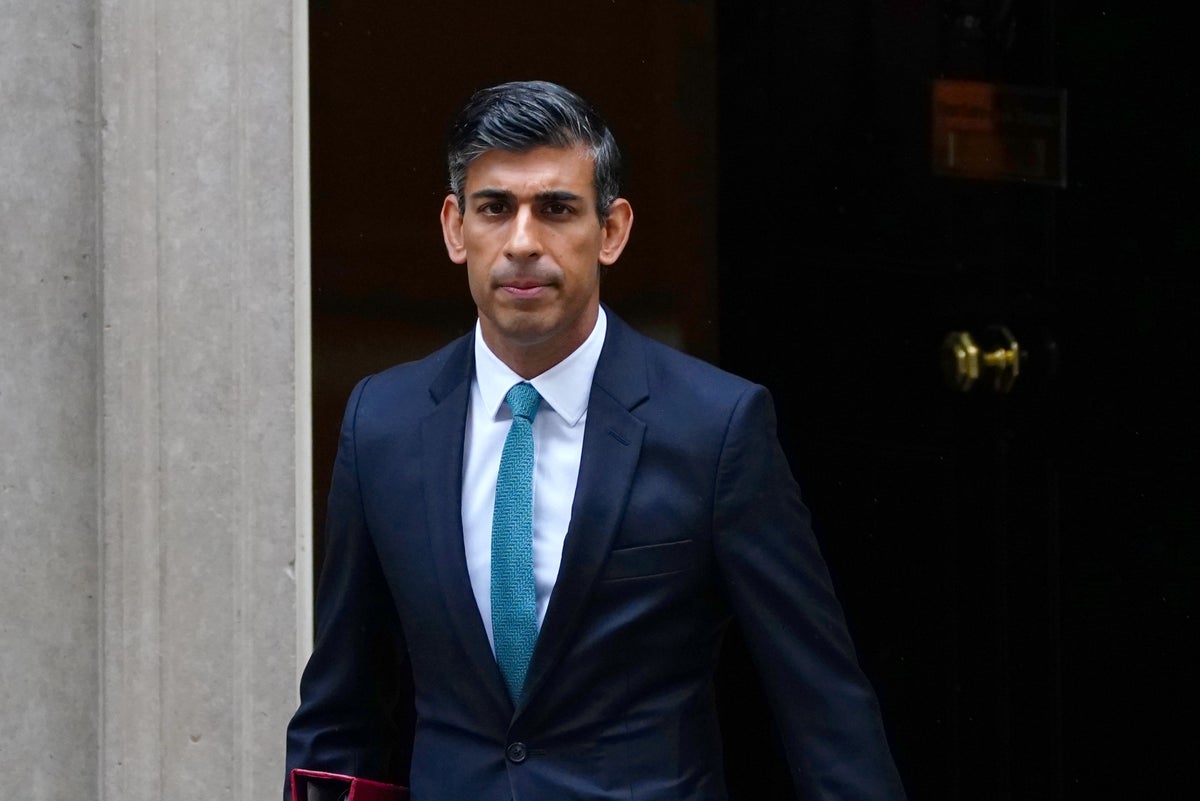
A much-criticised plan to axe 91,000 civil service jobs has been scrapped, in Rishi Sunak’s latest break with his predecessors in No 10.
A ban on the fast-stream recruitment of graduates has also been lifted, after warnings of an own-goal that would thwart hopes of attracting the best and brightest to Whitehall.
In May, Boris Johnson told cabinet ministers to reduce staffing levels in their departments to 2016 levels – a reduction of 91,000 posts, after numbers were boosted to deliver Brexit and fight Covid.
The then-prime minister hailed billions of pounds to be saved for tax cuts, saying the money could be left with taxpayers to “spend on their own priorities, their own lives”.
But, in a fresh message to civil servants, Mr Sunak pledged to give departments “the skills, tools and resources you need to be a modern civil service that reflects the people it serves”.
He added: “I do not believe that top-down targets for civil service headcount reductions are the right way to do that.
“Instead, the chancellor and I will be asking every government department to look for the most effective ways to secure value and maximise efficiency within budgets, so that we can use taxpayers’ money sustainably in the long term.”
Mark Serwotka, general secretary of the Public and Commercial Services (PCS) union, said ministers had recognised that 91,000 job cuts target was “political nonsense which would lead to huge damage”.
The suspension of the fast-stream programme, which recruits about 1,500 university leavers every year, was just as controversial.
David Lidington, the former deputy prime minister, called it “very foolish”, arguing having “super-bright young officials around the table” was important to challenge orthodoxy.
Mr Sunak’s move comes after he reimposed the effective ban on fracking last week, reversing the policy that triggered the collapse of Liz Truss’s premiership.
But the prime minister’s official spokesman said “reductions within the civil service” would still be needed, while adding: “We’re not going to put a sort of specific number on what that will be.
“We think it is right for departments to consider what is the right approach across their whole budgets so they can continue to deliver for the public.”
Civil servants remain fearful of steep budget cuts at the autumn statement on 17 November, as the chancellor Jeremy Hunt seeks to fill a £35bn hole in the public finances.
There are also suggestions of further real-terms cuts to pay, with the prospect of 2 per cent pay increases – when inflation is running at 10 per cent.
Mr Serwotka added: “We shall continue with our national strike ballot, urging our members to vote yes as we seek a 10 per cent pay rise for them, as well as improved terms for their pensions and redundancy arrangements.”







